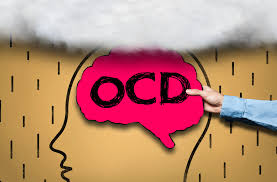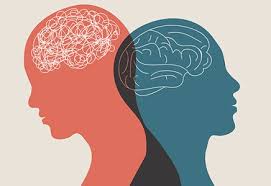Is OCD a personality disorder? Comprehensive Guide

Strong 8k brings an ultra-HD IPTV experience to your living room and your pocket.
Obsessive-Compulsive Disorder (OCD) is a mental health condition that is often misunderstood and mischaracterized. While some people associate OCD with specific personality traits or behaviors, it is essential to recognize that OCD is a distinct condition with unique diagnostic criteria, separate from personality disorders. If you are suffering from this disorder you should consult with the best psychiatrist or psychologist for better treatment.
This article will explore what OCD is, how it differs from personality disorders, its symptoms, causes, treatments, and common misconceptions.
By the end, you'll have a deeper understanding of where OCD fits within the broader spectrum of mental health.
Is OCD a Personality Disorder?
OCD is a chronic and potentially debilitating mental health condition characterized by obsessions and compulsions. Obsessions are intrusive and unwanted thoughts, images, or urges that cause significant distress, while compulsions are repetitive behaviors or mental acts performed to reduce the anxiety caused by these obsessions. Despite the temporary relief that compulsions may provide, the cycle of obsessions and compulsions can interfere with daily life, relationships, and overall well-being.
What Are Personality Disorders?
Personality disorders are long-lasting patterns of behavior, cognition, and emotion that deviate from cultural norms and significantly impact a person's functioning. There are ten specific personality disorders, grouped into three clusters:
Cluster A (Odd or Eccentric Behavior): Paranoid, Schizoid, and Schizotypal Personality Disorders.
Cluster B (Dramatic, Emotional, or Erratic Behavior): Antisocial, Borderline, Histrionic, and Narcissistic Personality Disorders.
Cluster C (Anxious or Fearful Behavior): Avoidant, Dependent, and Obsessive-Compulsive Personality Disorder (OCPD).
It's important to highlight the distinction between OCD and OCPD, as the two are often confused. Despite their similar names, they differ significantly in terms of symptoms, causes, and treatment.
The Difference Between OCD and OCPD
One of the most significant misunderstandings surrounding OCD is its perceived overlap with Obsessive-Compulsive Personality Disorder (OCPD). Both conditions involve patterns of obsessive behavior or perfectionism but are fundamentally different in key ways:
Focus of Symptoms:
OCD involves intrusive and distressing obsessions that individuals recognize as unwanted. Compulsions are performed to neutralize these obsessions.
OCPD is characterized by a rigid personality style and preoccupation with order, control, and rules, which the individual often views as beneficial or necessary.
Self-Insight:
People with OCD often recognize that their obsessions and compulsions are irrational or excessive.
Those with OCPD usually lack this insight and believe their way of thinking or behaving is appropriate or superior.
Distress and Impact:
OCD causes significant internal distress and anxiety due to the disruptive nature of obsessions and compulsions.
OCPD may not cause the same level of internal distress, but it can result in interpersonal conflicts and difficulties in relationships due to inflexible behavior.
Understanding these distinctions can help mental health professionals provide accurate diagnoses and effective treatment options.
Symptoms of OCD
OCD presents in a variety of ways, but common symptoms include:
Obsessions:
- Repeated, persistent, and unwanted thoughts or fears, such as:
- Fear of contamination or germs.
- Perfectionism or concern with symmetry and order.
- Unwanted aggressive, sexual, or taboo thoughts.
Compulsions:
- Repetitive behaviors or mental acts, such as:
- Excessive cleaning or handwashing.
- Checking things repeatedly (e.g., doors, locks, appliances).
- Rituals or routines are performed in a specific way.
- For a diagnosis, these symptoms must interfere with daily life and cause significant distress.
Causes of OCD
The exact causes of OCD are still being studied, but several factors may contribute, including:
Genetics: A family history of OCD or anxiety disorders may increase the risk.
Brain Structure and Functioning: Abnormalities in brain circuits, particularly those involving the neurotransmitter serotonin, have been linked to OCD.
Environment: Childhood trauma, stress, or negative life events may trigger or worsen OCD symptoms.
Cognitive Factors: Dysfunctional beliefs about responsibility, control, or danger can play a role in maintaining OCD.
Understanding the multifactorial nature of OCD helps guide treatment and management approaches.
Treating OCD
Effective treatments for OCD typically involve a combination of therapy and medications. Common approaches include:
Cognitive Behavioral Therapy (CBT): Specifically, Exposure and Response Prevention (ERP) is the gold-standard therapy for OCD. It involves gradually exposing individuals to their fears while preventing compulsions, reducing their sensitivity to triggers over time.
Medications: Selective Serotonin Reuptake Inhibitors (SSRIs), such as fluoxetine or sertraline, are commonly prescribed.
Support Groups and Community Resources: Connecting with others who understand the challenges of OCD can encourage and reduce feelings of isolation.
Common Misconceptions About OCD
Despite growing awareness, several misconceptions persist about OCD, including:
OCD Is Just a Quirk: Many people incorrectly believe OCD is solely about being overly clean or organized. While these may be symptoms for some, OCD encompasses a wide range of obsessions and compulsions.
OCD Equals Perfectionism: OCD involves distressing thoughts and behaviors beyond the desire for perfection, distinguishing it from general perfectionistic tendencies.
It’s Not a Big Deal: OCD can be severely disabling for many individuals, affecting their ability to work, maintain relationships, or even perform basic self-care.
Debunking these myths is essential for promoting accurate understanding and empathy for those living with OCD.
Conclusion
While Obsessive-Compulsive Disorder (OCD) and Obsessive-Compulsive Personality Disorder (OCPD) share some overlapping traits, they are distinctly different conditions with unique symptomatology and treatment approaches. Understanding these differences is crucial for accurate diagnosis and effective intervention. For individuals living with OCD, the focus is often on alleviating the distress caused by intrusive thoughts and compulsions.
FAQs
Frequently asked questions by people.
1. Can someone have both OCD and a personality disorder?
Yes, an individual can be diagnosed with both OCD and a personality disorder, but they are separate conditions with distinct symptoms and treatments.
2. Is OCD curable?
While there may not be a permanent "cure" for OCD, effective treatments can help individuals manage symptoms and lead fulfilling lives.
3. Are people with OCD always neat and organized?
No, not everyone with OCD exhibits neatness or organizational tendencies. For some, OCD may involve intrusive thoughts unrelated to cleanliness or order.
4. What should I do if I suspect I have OCD?
If you suspect you may have OCD, consult a mental health professional for an evaluation. Early diagnosis and treatment can significantly improve outcomes.
Note: IndiBlogHub features both user-submitted and editorial content. We do not verify third-party contributions. Read our Disclaimer and Privacy Policyfor details.







